Women’s Conference celebrates nearly a century of fighting for equality.
The 2015 Women’s Conference celebrated Women’s Council’s 95th birthday, looking back at famous victories and planning for future wins.
During an upbeat Welcome to Country, Binowee Bayles of the Metropolitan Local Aboriginal Land Council gave attendees an impromptu language lesson and talked about the role strong women played in Aboriginal culture.
Her welcome was followed by messages from Women’s Council Chair Leanne Smith and General Secretary Stewart Little on the role Women’s Council has played in combatting inequality in the workforce.
“Our work gets results,” said Mr Little. “Our workplaces are starkly different to when the PSA was formed in 1899.”
He cited the end of the marriage bar, pay inequality and “jobs for the boys”, as well as landmark pay equity cases in libraries and schools.
PSA CPSU NSW President Nicole Jess talked about history of walking together and the importance of voices being heard. She thanked women who came before her, such as former President Sue Walsh, who attended the event.
Vice President Shelley Odewahn introduced a 10-minute documentary on the history Women’s Council. The documentary, which is available to download on the PSA and CPSU NSW websites, gave a brief history of the Council, including its trailblazing win, getting domestic and family violence leave into an Enterprise Agreement before any other union. It also gave details on pay-equity wins and unsuccessful attempts from within the union to get rid of Women’s Council.
The documentary was followed by a panel talking about the history of Women’s Council. Senior Organiser and former Women’s Industrial Officer Anne Kennelly talked about huge strides made in 20th century, going from a world where “women did not work: women got married and women had babies” to today where they make up more than half the public workforce in NSW. She also talked about barriers encountered by Aboriginal women who wanted to work for the public sector for much of the last century.
Ms Kennelly gave detail on how the PSA fought to end the marriage bars and wage inequality embedded into awards, which limited women’s wages to 54 per cent of what men earned for the same work. As Ms Kennelly pointed out, formidable Delegates such as Jean Arnot from the State Library helped usher in equal wages for equal work, regardless of the employee’s gender.
Shabnam Hameed, who had served a brief term as PSA CPSU NSW Women’s Officer talked about how the Australian Family and Domestic Violence Clearing House wanted to use industrial provisions to get change through to workplaces leave provisions, which is what the PSA did when it got such entitlements into an Enterprise Agreement at the University of NSW.
Panellist and State Library Delegate Trish Leen said, “Equal remuneration for equal work did not happen in a vacuum”, but rather needed to result from change-focused organisations such as the Australian Labor Party and the PSA CPSU NSW.
Ms Leen talked about the ground-breaking Librarians case, where “they compared geologists and librarians. Geology was male-dominated and libraries were dominated by women” and awarded a 20 per cent pay increase to Librarians and Archivists.
“Even today: women’s work is demeaned,” she said. “Look at childcare workers.”
Ms Leen said the case should serve as a blueprint for future women looking to address institutional sexism.
“Be tenacious,” she said. “Get hold of something and don’t let go, because it can take years.”
Former tennis professional Jelena Dokic wowed the crowd with her story of surviving abuse at the hand of her infamous father. Despite her on-court achievements, including grand slam semifinals and a top world ranking of number four, Ms Dokic said her proudest achievement was “finding my voice” after years of domestic abuse and racist vitriol when she moved from Serbia to Australia.

After making “a difficult decision to escape home and run for my life”, Ms Dokic still had to hire security to keep her father away during tournaments. However, mental health struggles took a toll and, after a suicide attempt at the age of 22, Ms Dokic retired from the game she “absolutely loved” and had excelled at since first picking up a racquet at the age of six.
“I asked myself, would I ever be able to live a normal life,” she said. “Then, about a year into my retirement, a deal landed on my manager’s desk to write a book.
“I just wanted to tell my story to help someone: I had to talk about all the abuse I went through from my father and my mental health struggles and 13 months later, my first book, Unbreakable came out. She also overcame reticence to speak and poor social skills to embark on her new career as a tennis commentator and public speaker.
“This was the day my life changed. Nothing compared to this, I was finally free.”
Since then, Ms Dokic has released another book about “the light at the end of the tunnel”.
“It’s about the power of community,” she said. “Open conversations lead to change.”
With her new-found voice – a third book is on its way – she compared the self-belief required to compete in sport with everyday life: “to have any chance to get through you have to believe it”.
“Fall down a million times, it doesn’t matter,” she said. “What matters if you get up a million and one times.”
“I’m not a victim,” she said summing up her presentation. “I don’t want people to feel sorry for me and I don’t want people to feel pity for me.
“Shame needs to change sides. Shame shouldn’t go to the victims and survivors. Shame needs to go at the abusers and perpetrators.”
Mihajla Gavin of the University of Technology Sydney Business School discussed workplace responses to domestic and family violence and the importance of ensuring it is not considered “a private issue”. Speaking at a conference organised by the first union to get family and domestic violence into an Enterprise Agreement, Dr Gavin said Australia had a world-leading role in getting similar conditions rolled our globally.


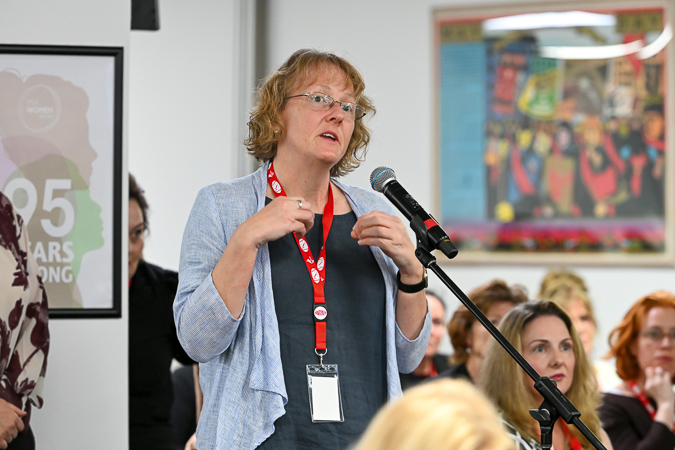
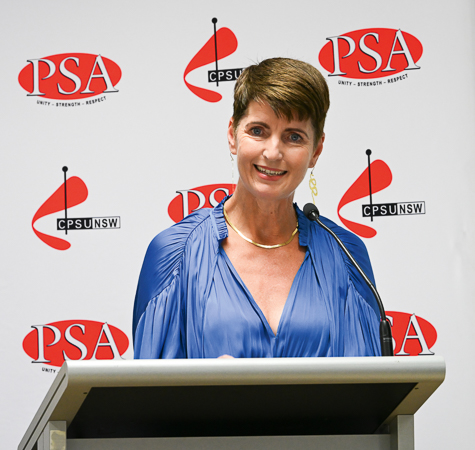

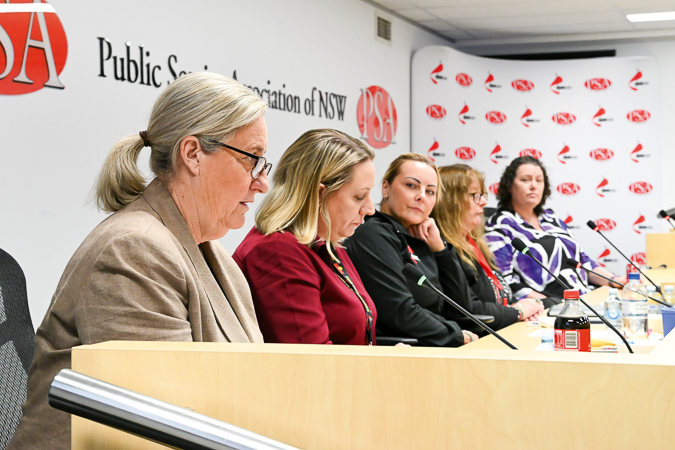

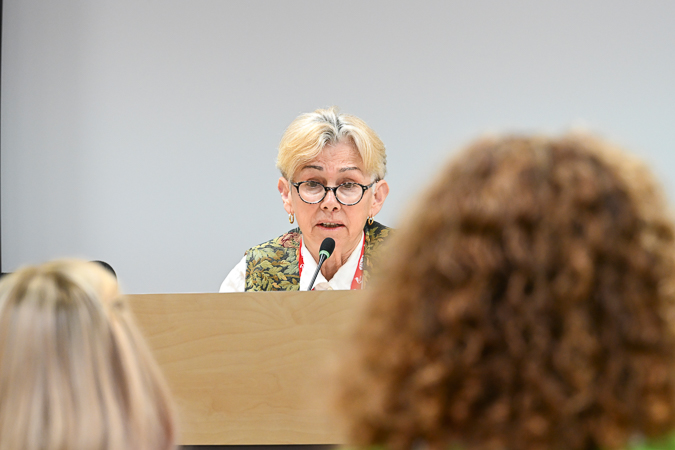
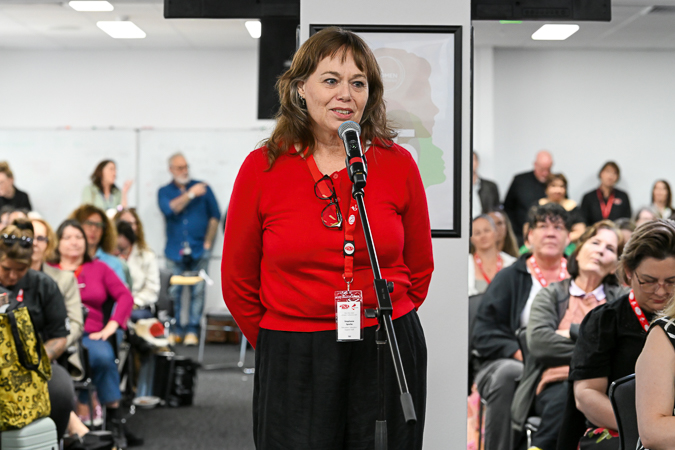
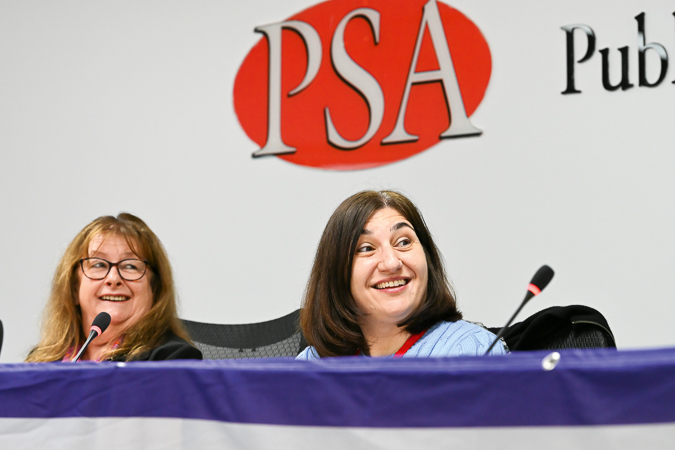

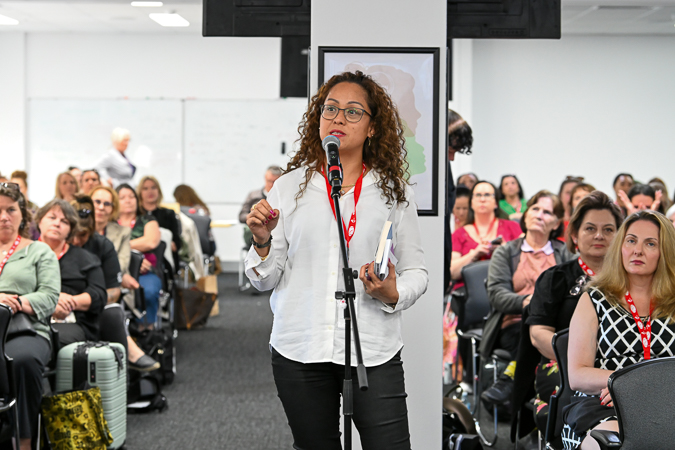
“These laws apply to hundreds of millions of workers worldwide,” she said.
However, Dr Gavin said there was an “implementation gap” and that conditions were not always accessed by people who would be eligible for domestic and family violence leave. Reasons for this included “shame and stigma” and avoidance of “difficult conversations”, with people from some cultural backgrounds particularly reluctant to discuss domestic and family violence. Other reasons included fear of repercussions such as being passed over for promotions.
Dr Gavin urged the members in the room to ensure colleagues in their workplaces were aware of domestic and family violence leave provisions.
The NSW Minister for Families and Community Services and Disability Inclusion, Kate Washington, said 95-year of Women’s Council was “worthy of celebrating”.
The Minister talked about the work she did with the PSA to repair a broken Child Protection system, recounting the conversations, many of which were “very bleak” she had with frontline Child Protection Workers. While the previous government heaped praise on many frontline workers during the COVID-19 pandemic, she said Child Protection Workers, who continues to go to work, were never mentioned.
“It was clear we needed to attract and retain quality workers,” Ms Washington said. “So for the first time in NSW history, Child Protection and our Child Protection workforce became the centrepiece of our state’s budget.”
She acknowledged Mr Little and Assistant General Secretary Troy Wright for the pressure they applied on her “in fighting for our Caseworkers”.
“We are reclaiming the responsibilities of government,” she said. “We are retreating from privatisation and re-opening residential care facilities. I have responsibility for 13,500 children in our state, it is a responsibility that cannot be outsourced.
“We are rebuilding the system from the ground up.”
Citing statistics on the gender gap in superannuation balances – “one in six women retire into poverty” – financial planner Pascale Helya-Moray talked about strategies women can take to better prepare themselves for retirement.
“The government wants us to invest as much as we can in our super,” she said, outlining the tax advantages of topping up super balances with additional payments.
The state’s first Women’s Safety Commissioner, Hannah Tonkin, outlined her work in protecting people from sexual and domestic violence. She said she has worked with entities such as Transport for NSW, the Department of Planning, the 24-hour Economy Minister and the taxi and rideshare industries to “improve women’s safety in public spaces, and online”.
Said public sector workers play a vital role in making NSW safer for women “That work within government is really important,” she said. “But it also acts as a ‘bridge’ between public and private sectors. I’m focused on women’s safety in all spheres of life.”Her work involved putting people who have experienced violence in front of decision makers and “embedding them into the process”.
As well as government, Ms Tonkin said informal networks, such as clubs and sports teams, are often perceived by women as safer places to bring up violence and abuse than official channels such as the Police Force. She said it was therefore important to be “a supportive listener if a friend or colleague opens up to you about a DV situation”.
NSW, she said, was making improvements. It was the first state, for example, to bring in coercive control laws and it was also improving Police responses to domestic and family violence.
Associate Professor of Law at the University of New England, Skye Charry, opened her presentation discussing the sexual harassment and bullying she experienced as a young worker, where there were no contexts to complain.
“We can make safety a critical component from this moment forward,” she said.
Professor Charry interviewed 107 women in regional Australia to get an insight into sexual harassment in rural areas. She found harassment was more prevalent in male-dominated sectors such as mining, and throughout the country, unacceptable conduct was written off as “banter”, even though it was really harmful language designed “to put high-performing women in their place”.
Even with mechanisms in place, she said a minority of workers in Australia are comfortable reporting sexual harassment and instead such behaviour can be so common “it goes unchallenged”. Professor Charry added and often managers give it a low priority: some called it dealing with “hurt feelings” and “thin skin”.
One strategy when faced with such behaviour was to reply; “Sorry, could you repeat that?” She said this was an indirect method that stops “power in its tracks”. Another strategy was to turn the tables on a harasser and ask, “Why did you say that?”
Kellie Jovanovski, Principal Inspector at SafeWork NSW, asked Conference, “What makes a good employer when it comes to managing workplace sexual harassment?”
She went on to outline three qualities: to understand, prevent and respond.
She asked if an employer understands sexual harassment is a WHS issue and does not regard complaints as employee grievances.
Ms Jovanovski said prevention “is what is going to keep you safe”. She said employers need to take active steps to prevent sexual harassment. Does it define harassment?
“How a business responds to the issue of sexual harassment is super important,” she added. “A good employer will get your investigation done quickly: weeks, not months.”
Anastasia Polites of Aware Super talked to women in the conference about the “catastrophic” superannuation gap, while Jennifer Langton of Aged Care Steps discussed a new member benefit for those arranging care of elderly parents.
Ruth Simms, the longest serving Aboriginal Education Officer in the state and a long-time PSA member had been awarded life membership at the conference dinner.
As Aunty Ruth was unable to attend Conference, the award was accepted on her behalf by Joe Cavanagh from the National Aboriginal and Torres Strait Islander Education Corporation. Mr Cavanagh talked about the importance of the AEO role and the fact she always “went above and beyond”, working extra unpaid time to help Aboriginal kids learn to read and have guidance.
“It was fitting to end Conference talking about Aunty Ruth Simms,” said PSA CPSU NSW President Nicole Jess after the event. “Her dedication to making NSW a better place embodies the values we find so important.
“Women’s Conference this year gave us a chance to look back at the achievements of our union, of Women’s Council, and of amazing women like Jean Arnot and Aunty Ruth. Our state would be far worse without women of this calibre.”



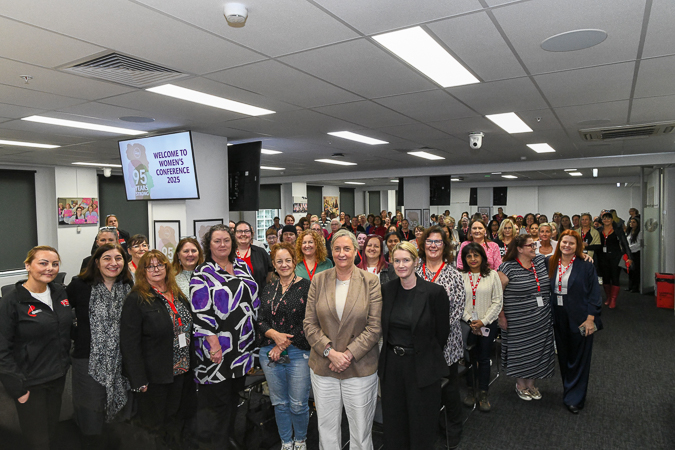





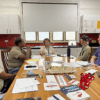



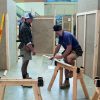
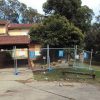
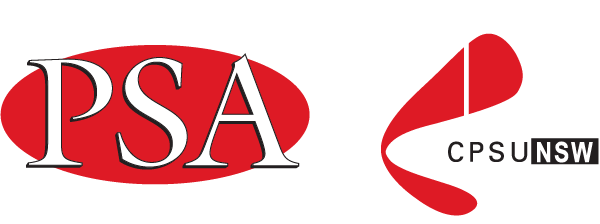
Leave a Comment
Your email address will not be published. Required fields are marked with *